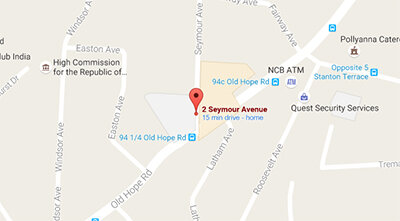Best Antitrust Lawyers in Jamaica
Share your needs with us, get contacted by law firms.
Free. Takes 2 min.
Or refine your search by selecting a city:
List of the best lawyers in Jamaica
About Antitrust Law in Jamaica:
Antitrust law in Jamaica, also known as competition law, is designed to promote fair competition and protect consumers from anti-competitive practices. It aims to prevent monopolies, price-fixing, market manipulation, and other practices that stifle competition in the marketplace.
Why You May Need a Lawyer:
You may need a lawyer in Antitrust cases in Jamaica if you believe your rights have been violated by anti-competitive practices, if you are being investigated for antitrust violations, or if you need to navigate complex antitrust laws and regulations.
Local Laws Overview:
In Jamaica, the main legislation governing antitrust is the Competition Act. This Act prohibits anti-competitive agreements, abuse of dominance by a firm, and mergers that substantially lessen competition in the market. The Fair Trading Commission is responsible for enforcing the Competition Act and investigating antitrust violations.
Frequently Asked Questions:
1. What is considered an anti-competitive agreement?
An anti-competitive agreement is any agreement between competitors that restricts competition in the market, such as price-fixing, market allocation, or bid-rigging.
2. What constitutes abuse of dominance?
Abuse of dominance occurs when a firm with significant market power engages in unfair practices to exclude competitors from the market or exploit consumers.
3. When do mergers require approval under the Competition Act?
Mergers require approval if they are likely to substantially lessen competition in the market. The Fair Trading Commission assesses mergers to determine their impact on competition.
4. What penalties can be imposed for antitrust violations?
Penalties for antitrust violations in Jamaica can include fines, orders to cease anti-competitive practices, and divestiture of assets.
5. How can I report an antitrust violation?
You can report antitrust violations to the Fair Trading Commission, which is responsible for investigating and enforcing antitrust laws in Jamaica.
6. What defenses are available in antitrust cases?
Defenses in antitrust cases may include demonstrating pro-competitive justifications for the conduct in question or challenging the evidence of anti-competitive behavior.
7. Can individuals file antitrust lawsuits in Jamaica?
Yes, individuals and businesses can file lawsuits for antitrust violations in Jamaica to seek damages for harm caused by anti-competitive practices.
8. How long does an antitrust investigation typically last?
The duration of antitrust investigations in Jamaica can vary depending on the complexity of the case and the cooperation of the parties involved.
9. What is the role of the Fair Trading Commission in enforcing antitrust laws?
The Fair Trading Commission is responsible for investigating antitrust violations, enforcing the Competition Act, and promoting fair competition in the Jamaican marketplace.
10. How can a lawyer help me in an antitrust case?
A lawyer can provide legal advice on antitrust laws, represent you in antitrust investigations or lawsuits, and help you navigate the complexities of antitrust regulations in Jamaica.
Additional Resources:
For more information on Antitrust in Jamaica, you can visit the website of the Fair Trading Commission or seek guidance from legal organizations such as the Jamaican Bar Association.
Next Steps:
If you require legal assistance in Antitrust matters in Jamaica, it is advisable to seek the counsel of a qualified antitrust lawyer who can guide you through the legal process and protect your rights under the Competition Act.
Lawzana helps you find the best lawyers and law firms in Jamaica through a curated and pre-screened list of qualified legal professionals. Our platform offers rankings and detailed profiles of attorneys and law firms, allowing you to compare based on practice areas, including Antitrust, experience, and client feedback.
Each profile includes a description of the firm's areas of practice, client reviews, team members and partners, year of establishment, spoken languages, office locations, contact information, social media presence, and any published articles or resources. Most firms on our platform speak English and are experienced in both local and international legal matters.
Get a quote from top-rated law firms in Jamaica — quickly, securely, and without unnecessary hassle.
Disclaimer:
The information provided on this page is for general informational purposes only and does not constitute legal advice. While we strive to ensure the accuracy and relevance of the content, legal information may change over time, and interpretations of the law can vary. You should always consult with a qualified legal professional for advice specific to your situation.
We disclaim all liability for actions taken or not taken based on the content of this page. If you believe any information is incorrect or outdated, please contact us, and we will review and update it where appropriate.
Browse antitrust law firms by city in Jamaica
Refine your search by selecting a city.













